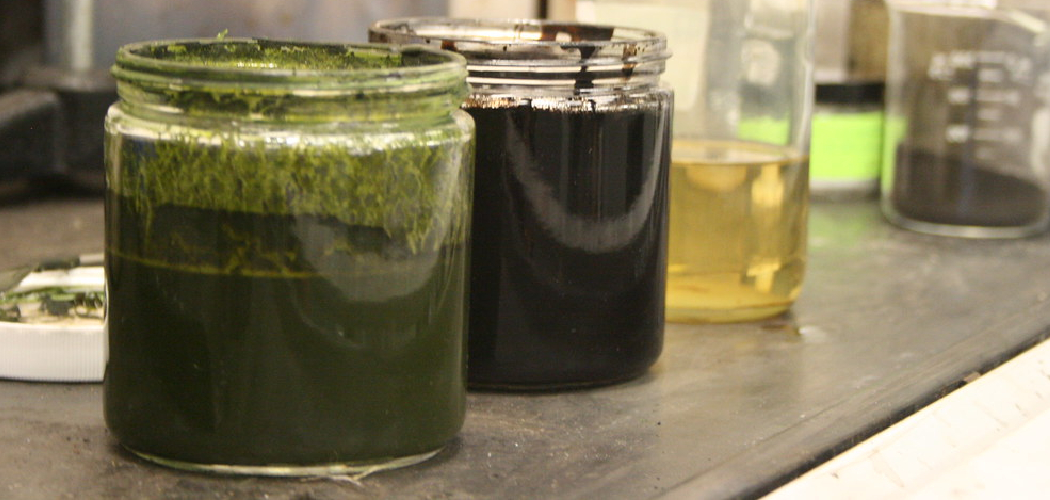When it comes to fueling your vehicle, you want to make sure you are putting the right type of fuel in your tank. However, mistakes can sometimes happen and you may accidentally put gas in a diesel engine or vice versa. This can cause major issues with your vehicle’s performance and potentially lead to costly repairs.
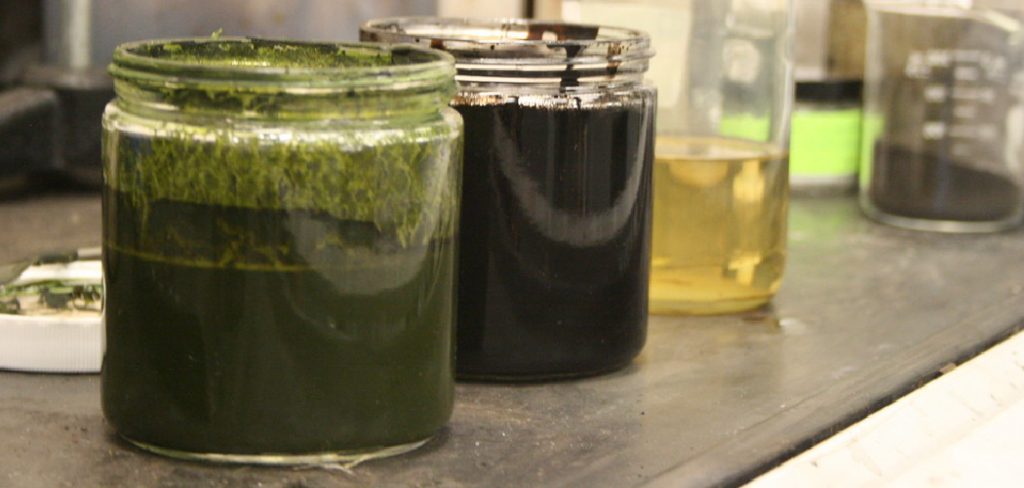
The main advantage of knowing to test for gas in diesel fuel is that it can save you a lot of money and hassle. With the rising cost of fuel, mixing up gasoline with diesel can be a costly mistake. This is because putting gas into your diesel engine can cause damage and potentially lead to expensive repairs. In this blog post, You will learn in detail how to test for gas in diesel fuel.
Step-by-step Instructions for How to Test for Gas in Diesel Fuel
Step 1: Inspect The Appearance of Fuel
The first step to testing for gas in diesel fuel is to visually inspect the appearance of the fuel. Gasoline and diesel have different colors and consistencies, so you should be able to tell if there is any contamination just by looking at it.
If the fuel appears cloudy or has a yellowish tint, it may contain gasoline. This could be a sign that someone accidentally mixed the two fuels or that the diesel is contaminated.
Step 2: Smell the Fuel
Next, you should take a whiff of the fuel. Gasoline has a distinct odor, so if you smell it in your diesel fuel, there is likely contamination. Diesel usually has a stronger and more pungent odor compared to gasoline, so any hint of gasoline smell is a red flag.
Step 3: Check for Sediment
Using a clean, white cloth or paper towel, dip it into the fuel and check for any sediment. Gasoline can leave behind tiny particles when mixed with diesel, so if you see any debris or dirt on the cloth, it could be an indication of gas contamination.
Fuel filters are designed to catch any impurities in the fuel, so it’s a good idea to check them for any signs of gas contamination. If you see any residue or discoloration on the filter, this could be a result of gasoline mixing with diesel.
Step 4: Perform a Water Separation Test
Water and fuel do not mix, so if there is any gasoline in your diesel fuel, it may cause a separation. You can perform a simple water separation test by filling a clear container with the fuel and letting it sit for a few minutes. If you see two distinct layers, with water at the bottom and fuel on top, this could indicate gas contamination.

Another way to test for gas in diesel fuel is by using water detection strips. These strips contain a chemical that changes color when it comes into contact with water, making it easy to identify any contamination.
Step 5: Monitor Engine Performance
If you suspect there may be gas in your diesel fuel, you should also pay attention to how your engine is performing. Gasoline has a lower cetane rating compared to diesel, which could affect your engine’s performance. If you notice any changes in how your vehicle runs, it may be a sign of gas contamination.
If you still have doubts about the presence of gasoline in your diesel fuel, you can have it tested by a professional lab. They will be able to accurately determine the amount of gas in your fuel and provide you with a report.
Step 6: Drain and Flush the Fuel System
If tests confirm that there is indeed gasoline in your diesel fuel, it’s important to drain and flush the entire fuel system. This will help remove any remaining contaminated fuel and prevent further damage to your engine.
To avoid any future contamination, make sure you are using the correct fuel for your vehicle and always double check that the pump is dispensing diesel before filling up. You can also invest in a fuel additive specifically designed to prevent gas contamination.
By following these simple steps, you can effectively test for gas in diesel fuel and take necessary actions to prevent engine damage and maintain the performance of your vehicle. Regularly inspecting your fuel and being aware of any potential contamination can also save you from costly repairs in the long run.
Safety Tips for How to Test for Gas in Diesel Fuel

- Wear protective gear such as gloves and safety glasses when handling fuel to avoid contact with the skin or eyes.
- Make sure the area is well-ventilated while testing for gas in diesel fuel to prevent inhalation of harmful fumes.
- Use caution when inspecting the appearance of fuel, as it may be hot and can cause burns if touched.
- Properly dispose of any contaminated fuel in accordance with local regulations.
- Always keep a fire extinguisher nearby when working with fuel to prevent potential fires.
- If you are unsure or uncomfortable performing the tests yourself, seek professional help.
- Regularly check your vehicle’s user manual for the recommended type of fuel and any specific precautions for your particular make and model.
By following these safety tips, you can ensure a safe and effective testing process for gas in diesel fuel. Remember to always prioritize your safety and take necessary precautions when handling potentially hazardous materials. Be proactive in preventing contamination and regularly inspecting your fuel to maintain the health of your engine and vehicle.
Importance of Testing for Gas in Diesel Fuel
There are many potential issues that can arise when using diesel fuel, and one of the most serious is contamination with gas. This can happen for a variety of reasons, such as accidental filling up of a diesel tank with gasoline, or through the presence of water in the storage system that promotes microbial growth and production of gases like methane.
Regardless of how it happens, having gas in diesel fuel can lead to significant problems for engines and other equipment that rely on this type of fuel. That’s why it’s important to regularly test for the presence of gas in diesel fuel, and here are seven reasons why.
1. Prevent Engine Damage
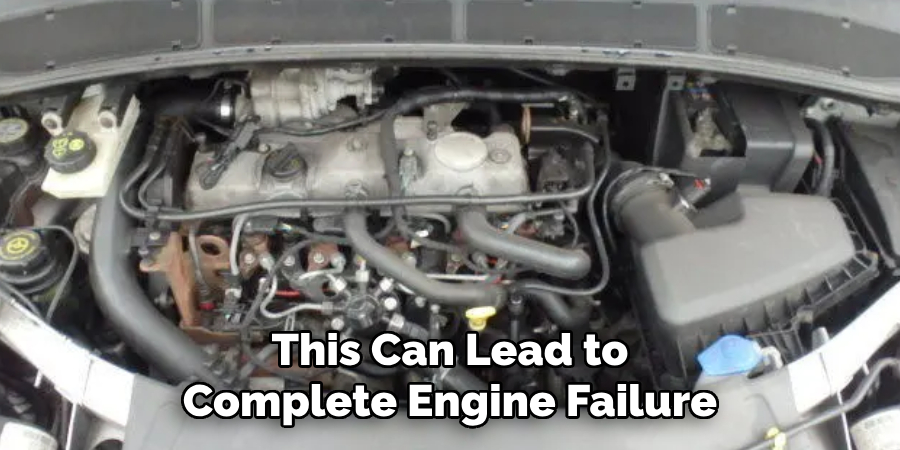
When a diesel engine is designed to run on pure diesel, any amount of gasoline mixed in with the fuel can cause damage. Gasoline has a much lower lubricity than diesel, which can cause increased wear and tear on engine components like fuel injectors and pumps. In severe cases, this can lead to complete engine failure.
2. Protect Against Corrosion
Gasoline contains ethanol, which is known to corrode metal parts in engines and fuel systems. When gasoline mixes with diesel fuel, it can create an acidic environment that accelerates the corrosion process. This can lead to costly repairs or replacements of engine parts.
3. Maintain Fuel Efficiency
A diesel engine is designed to run on a specific fuel-to-air ratio for optimal performance and efficiency. When gas is present in the fuel, this balance is thrown off and the engine may not be able to operate at its peak level. This can result in decreased fuel efficiency, leading to higher costs for refueling.
4. Avoid Potential Fires and Explosions
Gasoline is highly flammable and mixing it with diesel fuel can create a dangerous situation. Even small amounts of gas in diesel fuel can increase the risk of fire or explosion, which can be catastrophic for both equipment and individuals nearby. Regular testing for gas can help prevent these types of incidents from occurring.
5. Comply with Regulations
Most industries that rely on diesel fuel have regulations in place to ensure the safety and efficiency of their operations. These regulations often include guidelines for acceptable levels of gas in diesel fuel, so regular testing is necessary to ensure compliance and avoid potential penalties or fines.
6. Identify Contamination Sources
Regular testing for gas in diesel fuel can help identify potential sources of contamination. This information can then be used to implement preventative measures and avoid future incidents.
7. Ensure Reliable Equipment Performance
For industries that rely heavily on diesel equipment, such as construction or transportation, regular testing for gas in diesel fuel is crucial for maintaining reliable performance. Catching and addressing any issues with fuel contamination early on can prevent costly breakdowns and downtime.
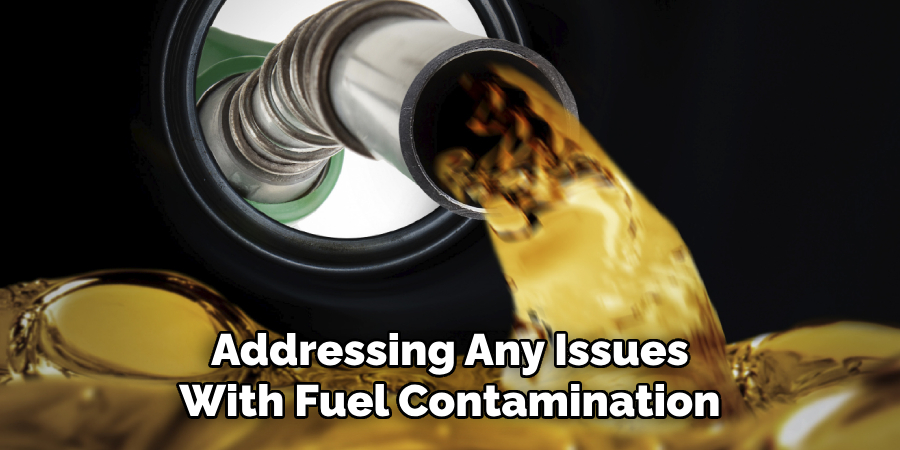
In conclusion, testing for gas in diesel fuel is essential for preventing engine damage, protecting against corrosion, maintaining fuel efficiency, ensuring safety and compliance, identifying contamination sources, and ensuring reliable equipment performance.
Causes of Testing for Gas in Diesel Fuel
- Contamination: One of the main reasons for testing gas in diesel fuel is to check for contamination. Gasoline can be mistakenly mixed with diesel fuel, especially at fuel stations, trucks or storage tanks. This contamination can cause serious damage to the engine and other components of the vehicle.
- Fuel Efficiency: Testing gas in diesel fuel can also help in determining the fuel efficiency of the vehicle. If there is a high concentration of gasoline in diesel, it can affect the combustion process and result in poor fuel efficiency. By testing for gas, any issues can be identified and fixed to improve the overall performance of the vehicle.
- Engine Damage: Another important reason for testing gas in diesel fuel is to prevent damage to the engine. Gasoline has a lower lubricity compared to diesel fuel and can cause wear and tear in the engine. By regularly testing for gas, any contamination can be detected and addressed before it causes irreversible damage.
- Environmental Impact: Using gasoline in a diesel engine not only damages the vehicle but also has a negative impact on the environment. Gasoline emits more harmful pollutants compared to diesel fuel, which can contribute to air pollution. By testing for gas, the use of contaminated fuel can be prevented, reducing its impact on the environment.
- Safety Concerns: Testing gas in diesel fuel is also crucial for safety reasons. Mixing gasoline with diesel fuel can create a volatile mixture that increases the risk of explosions and fires. This is especially dangerous in industrial settings where large quantities of fuel are stored and used. Regular testing for gas can help prevent accidents and ensure the safety of workers.
- Compliance: Many industries have strict regulations regarding the use of diesel fuel, especially in terms of emissions. By regularly testing for gas, companies can ensure they are compliant with these regulations and avoid any potential penalties or fines.
- Cost Savings: Lastly, testing gas in diesel fuel can result in significant cost savings for vehicle owners. Catching any contamination early on and addressing it promptly can prevent expensive engine damage and repairs. It can also help improve fuel efficiency, resulting in long-term cost savings on fuel expenses.

By understanding the various causes of testing for gas in diesel fuel, vehicle owners and companies can take necessary measures to prevent any issues and ensure optimal performance of their vehicles. Regular testing is crucial for maintaining the health and safety of both vehicles and individuals working with them.
Signs and Symptoms of Gasoline Contamination
Gasoline is a commonly used fuel in vehicles, lawnmowers and other equipment. It is important to ensure that the gasoline being used is free from any contamination as it can lead to various issues with the engine and affect its performance. In this article, we will discuss 7 signs and symptoms of gasoline contamination that you should be aware of.
1. Poor engine performance
One of the most common signs of gasoline contamination is poor engine performance. This can manifest in various ways such as difficulty starting the engine, rough idling, and decreased power or acceleration while driving. Contaminated gasoline can clog up fuel filters and injectors, affecting the flow of fuel to the engine and causing it to run poorly.
If you notice a decrease in your vehicle’s performance, it could be due to contaminated gasoline.
2. Engine stalling
Another symptom of gasoline contamination is engine stalling. This occurs when the engine suddenly shuts off while the vehicle is running. It can be dangerous and can happen at any time, leaving you stranded on the road. Stalling can also be caused by a clogged fuel filter or injector due to contamination in the gasoline.
3. Unusual engine noises
If you hear strange noises coming from your engine, it could also be a sign of gasoline contamination. This is because contaminated gasoline can cause damage to various engine components, leading to unusual sounds such as knocking or pinging. If left untreated, these noises can escalate into serious engine problems.
4. Fuel system component damage
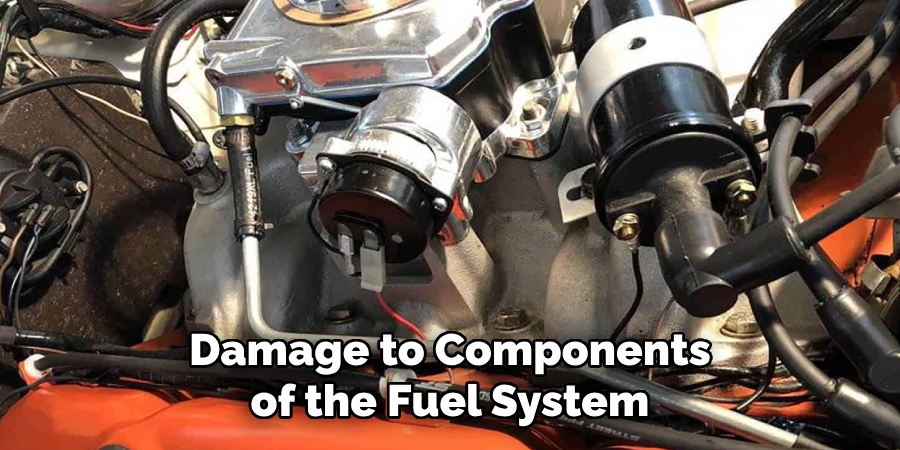
Gasoline contamination can cause damage to various components of the fuel system, including the fuel pump, fuel filter, and fuel injectors. This is because contaminants like dirt and debris can clog these parts or cause them to wear out prematurely. If these components fail, it can result in costly repairs.
5. Decreased fuel efficiency
Contaminated gasoline can also affect your vehicle’s fuel efficiency. When the engine is not receiving clean and proper fuel, it has to work harder to function, which leads to an increase in fuel consumption. If you notice a sudden decrease in your vehicle’s miles per gallon, it could be due to gasoline contamination.
6. Foul odor
Gasoline should have a distinct, pungent odor. If you notice a foul or unusual smell coming from your vehicle’s exhaust, it could be a sign of gasoline contamination. This can also indicate the presence of other contaminants like water or diesel in the gasoline.
7. Check engine light
The check engine light on your dashboard can also indicate gasoline contamination. If the engine is not receiving clean and proper fuel, it can trigger the check engine light to come on. It is important to get your vehicle checked by a mechanic as soon as possible if this happens.
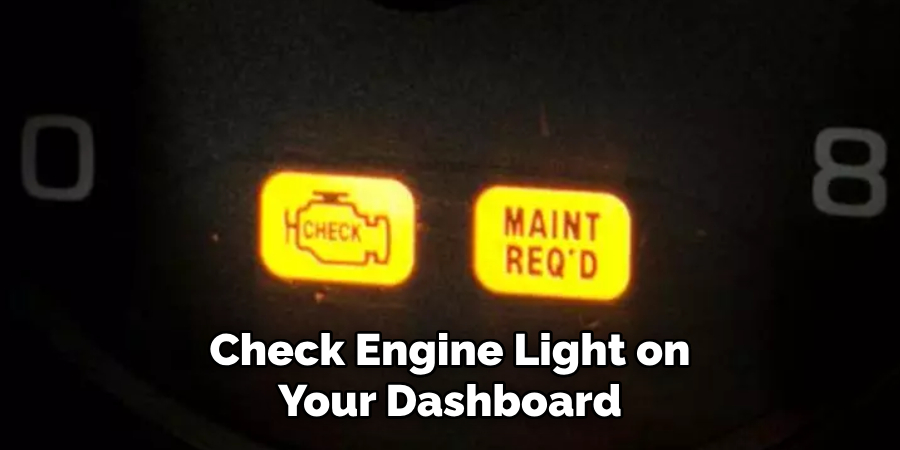
Gasoline contamination can lead to various issues with your vehicle’s engine and affect its performance. It is important to be aware of the signs and symptoms of gasoline contamination so that you can take necessary actions to prevent any further damage. Regularly checking and maintaining your vehicle’s fuel system is essential in ensuring clean and proper fuel for optimal engine performance.
Conclusion
In conclusion, testing for gas in diesel fuel is a crucial step in ensuring the proper functioning and longevity of your vehicle’s engine. It may seem like an extra task, but it can save you from expensive repairs and potential safety hazards down the road.
By following the steps outlined in this blog post, you can easily check for any contamination of gas in your diesel fuel. From visual inspections to using specialized test kits, there are various methods available for detecting the presence of gas.
Regularly testing for gas in diesel fuel is especially important for vehicles that are not used frequently or have been sitting idle for long periods. Stale or contaminated fuel can significantly affect engine performance and cause damage over time. I hope reading this post has helped you learn how to test for gas in diesel fuel. Make sure the safety precautions are carried out in the order listed.

